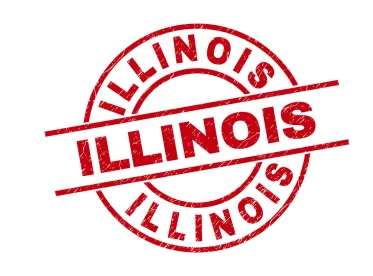An Illinois federal court recently rejected an online eyewear retailer’s request for attorneys’ fees as the prevailing party in a Biometric Information Privacy Act (BIPA or Privacy Act) class action over its virtual try-on (VTO) tools. The district judge had previously dismissed the case with prejudice under the Privacy Act’s health care exemption.
Quick Hits
-
An Illinois federal judge ruled that to the extent that the Privacy Act allows a prevailing defendant to recover attorneys’ fees, the defendant must show the losing plaintiff acted in bad faith.
-
The judge said it was not unreasonable for a plaintiff to pursue privacy claims over an online eyewear VTO tool even though two other cases were dismissed under the Privacy Act’s healthcare exemption.
On July 27, 2023, a federal judge in the U.S. District Court for the Northern District of Illinois denied Christian Dior, Inc.’s motion for attorneys’ fees as the “prevailing party,” holding that the company could not recover attorneys’ fees under the Privacy Act as a defendant without showing the claims against it were brought in bad faith.
The ruling comes despite the fact that the lawsuit was filed against it after another federal court had tossed a similar Privacy Act case over an online eyewear VTO tool based on the healthcare exemption and even though the plaintiff continued to pursue her claims after a second similar suit was dismissed for the same reason.
Background
On February 10, 2023, the judge in Warmack-Stillwell v. Christian Dior, Inc. tossed claims alleging that a VTO tool, which allowed online shoppers to view what sunglasses might look like on their faces, had unlawfully scanned their facial geometry. The judge held that claims fell into the healthcare exemption to the Privacy Act—which regulates the collection, use, storage, transmission, and destruction of “biometric identifier” and “biometric information” including facial geometry.
The judge held that even though a consumer may use a VTO tool only for styling purposes, both prescription and nonprescription sunglasses are Class I medical devices that protect users from the harmful effects of the sun. Therefore, the claims involved “information captured from a patient in a health care setting” not covered by the Privacy Act.
Christian Dior then filed a motion to recover attorneys’ fees arguing that the Privacy Act states that “[a] prevailing party may recover for each violation … reasonable attorneys’ fees and costs, including expert witness fees and other litigation expenses.”
Bad Faith
The judge in Warmack-Stillwell stated that while it is not clear that the Privacy Act allows defendants to recover attorneys’ fees, to the extent that it does, the act requires a defendant to make an initial, or threshold, showing of bad faith. The judge found it significant that the only way the legislature provided to enforce compliance” was through a private right of action.
The judge stated that “[e]xposing plaintiffs bringing BIPA suits in good faith, even if ultimately unsuccessful, to attorneys’ fees would unduly chill the sole enforcement mechanism for a law the legislature clearly intended to protect critical privacy interests and would defy BIPA’s remedial purpose.” In a footnote, the judge stated that even if bad faith were only one factor to consider, the judge would still deny Christian Dior’s motion for attorneys’ fees “because the other factors identified by Dior do not outweigh the bad faith factor here.
The judge further ruled that the Illinois Supreme Court’s ruling in Cothron v. White Castle System Inc., that courts have “discretion” to fashion an appropriate remedy, did not change its analysis. The judge relied on a separate precedent that suggested that where a law leaves discretion to a trial court on attorneys’ fees, a court “must consider the overall purpose of the statute” to determine whether a showing of bad faith is required.
Ultimately, the judge stated that “it was not unreasonable for plaintiff to pursue her case” even though federal courts in two other cases had found that VTO tools used for prescription glasses and nonprescription sunglasses fell under the Privacy Act’s healthcare exemption. The judge stated those decisions are not binding and that neither the Seventh Circuit nor the Illinois Supreme Court have provided guidance on the issue.
Key Takeaways
The Warmack-Stillwell case highlights the difficulty for defendants to recover attorneys’ fees after prevailing in a Privacy Act case even as courts continue to read the Privacy Act to open companies up to liability for even minor violations of the act’s granular requirements. The judge found that Christian Dior was not entitled to recover fees even though the plaintiff pursued Privacy Act claims on a theory that courts had held to be covered by the Privacy Act’s healthcare exemption. At the same time, the judge in Warmack-Stillwell pointed out that binding legal authority has yet to provide guidance on the question of whether shopping for eyewear that has arguable medical purposes falls into the healthcare exemption.





 />i
/>i
